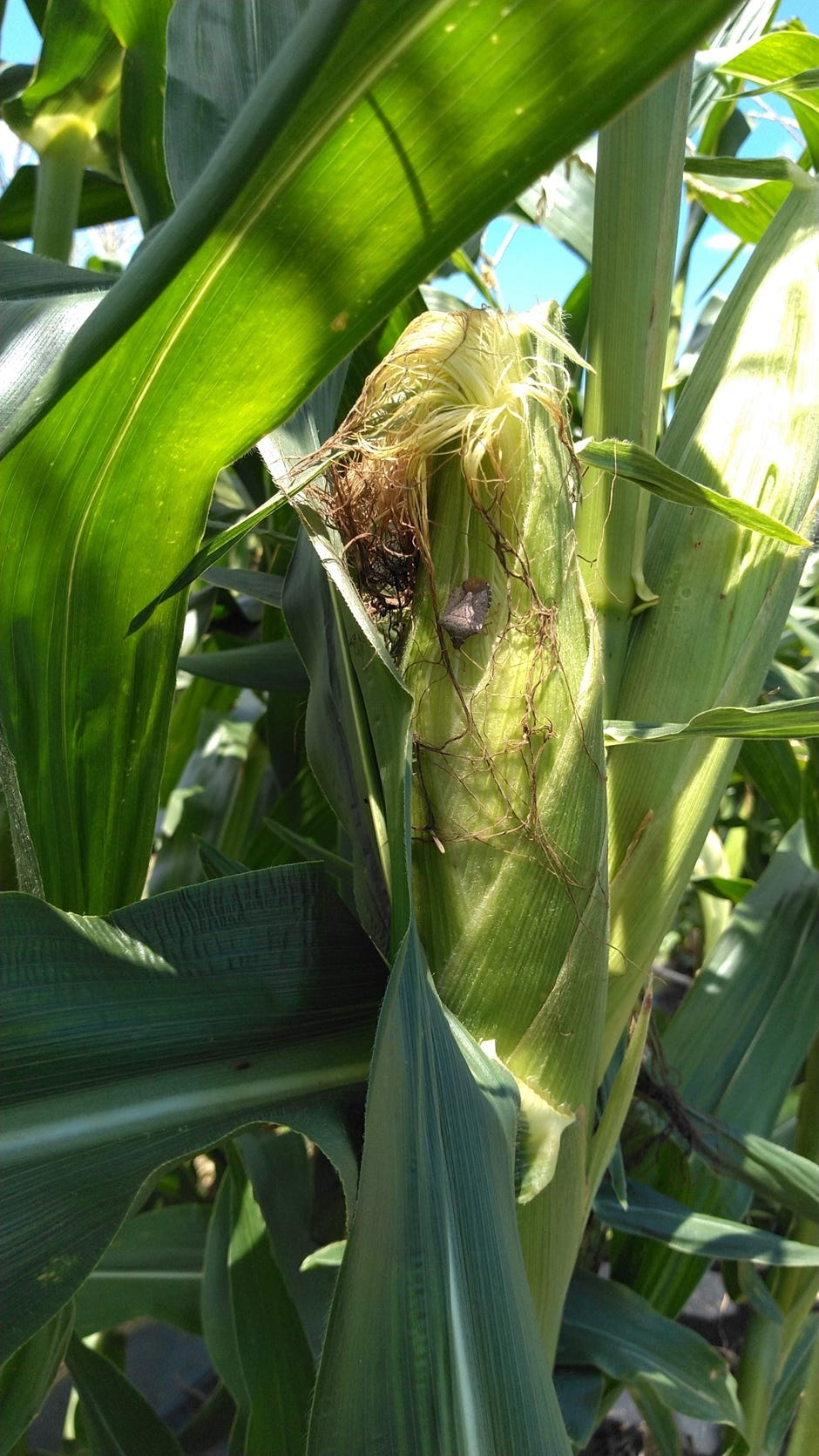![A stink bug is pictured on an ear of sweet corn. [CONTRIBUTED PHOTO]](http://127.0.0.1/wordpress/wp-content/uploads/2022/01/ghows-DA-8c3bd575-5da4-125e-e053-0100007f37ce-0cd8ac48.jpeg)
Integrated pest management is the coordinated use of pest and environmental information and available pest control methods to prevent unacceptable levels of pest damage. It is done by the most economical means with the least possible hazard to people, property and the environment, according to Leppla of IPM Florida.
The first step in Integrated Pest Management is to correctly identify the pest.
For vegetable crops in our area, there are several common insect pests that feed on a variety of vegetables. We have stink bugs, caterpillars, and beetles that we will focus on.
Stink bugs are major pests in so many different crops. They have piercing sucking mouthparts. Besides sucking nutrients out of the crops, they open the crop up to secondary infections.
Leaf-footed bugs are similar and often mistakenly called stink bugs. They are just as harmful to the crops and damage the crops in the same way.
It is important to know what each life stage looks like since insects go through metamorphosis and each stage looks different.
Caterpillars are the larval stage of moths and butterflies. Most caterpillars that eat crops are larval moths.
Armyworms and cutworms feed on a variety of plants, whereas other caterpillars are picky and have a preferred host plant, such as tomato hornworm. Caterpillars are easiest to control when they are very small.
Not all beetles that you find in your garden are bad, but there are a few that can cause serious damage. The adult beetles feed on leaves while their larval stage feeds on roots.
Examples of this would include the Colorado Potato Beetle, Flea Beetle and Cucumber Beetle. These beetles sometimes go unnoticed as they cause their damage, especially the larvae, which are doing damage underground.
Always remember to correctly identify each pest before applying any pesticide or control measure.
or help identifying pests in vegetable crops, you can contact our office at 850-689-5850. We have agents and Master Gardener volunteers who are happy to assist you.
Jennifer Bearden is an agent at the University of Florida's Institute of Food and Agricultural Sciences Extension office in Crestview.

This article originally appeared on Crestview News Bulletin: Pest identification is key to controlling them
